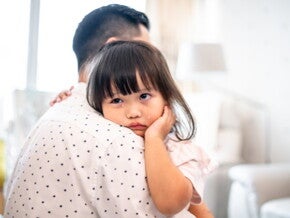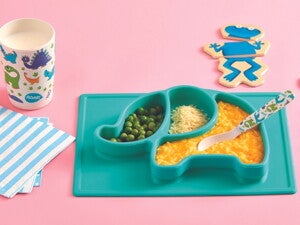
Choosing Between Preschool vs Daycare for Your Toddler: What to Consider
Choosing the right early childhood education can be daunting. Understanding your options, in particular the difference between daycare and preschool is important to help you determine the best fit for your family.
Early childhood education and care is delivered to children and families by various approved providers and services throughout Australia. Choosing a quality service is so important for both your child and your piece of mind. It’s going to be quite an influential environment for your little one, so you want them to be happy and comfortable in order to thrive and grow.
Understanding daycare
Daycare is a service for parents seeking a safe, nurturing environment for their children during the day. Most daycare centres provide long daycare hours Monday to Friday, offering a structured setting where children can learn, play, and socialise. The primary goal is to support the overall development of children, focusing on their cognitive, emotional, and social skills.
Children in daycare usually range from 0 to 6 years old, covering crucial developmental stages. These centres cater to each age group's specific needs, aiming for a balanced approach to learning and play.
Daycare routines often include various activities such as group time, arts and crafts, story time, outdoor play, music and movement, and educational games. These routines aim to balance structured learning and free play, offering children opportunities to explore and grow in a supportive environment.
Apart from centre-based daycares, you may have Family Day Care or In Home Care available in your area which you could enrol your child into if that’s a better fit. Every service that receives approval under the National Quality Framework (NQF) must adhere to the requirement of having an educational program that aligns with an approved learning framework.
Understanding preschool
Preschool usually refers to an educational service offered to children aged 3-6 years. Preschool can also be called Kindergarten’s in some states and territories. Preschools can be privately run, but most operate within the grounds of a primary school, or somewhat attached to a primary school. It serves as a critical step in early childhood education, preparing children for their first year of school (kindergarten/prep/foundation) and beyond. Preschools usually only offer part-time hours (e.g. 15 hours over the week) however within the shorter hours they still offer a structured learning environment that promotes social, emotional, cognitive, and physical development.
In preschool, children are introduced to foundational academic concepts like letters, numbers, shapes, and colours. However, the primary emphasis is on holistic development through play-based activities that teach problem-solving, cooperation, communication, and self-expression.
Preschools follow a curriculum aligned with the early learning frameworks established by the Australian government. This curriculum promotes exploration, creativity, and hands-on experiences through structured activities, free play, outdoor play, storytelling, music, art, and early literacy and numeracy exercises.
Key differences between daycare and preschool
Understanding the key differences between preschool vs daycare can help you make an informed decision about the best option for your child. While both provide care for young children, they can differ in staff qualifications, operating hours, and developmental goals.
Staff qualifications and training: Daycare staff may have varying levels of qualifications depending on what role they play within the daycare, and what type of daycare you attend. Educational daycares will have staff with certifications in early childhood education, while others may have limited formal training. In contrast, preschools typically employ qualified and experienced teachers who have completed relevant early childhood education courses, ensuring they are well-equipped to support children's learning and development.
Operating hours and scheduling: Daycare centres generally offer longer hours to accommodate parents' work schedules, including early mornings and late evenings. Preschools, however, usually operate during structured hours similar to a school day or within school hours.
Developmental goals and outcomes: Daycare centres for 0-3 year-olds focus on providing a safe and nurturing environment for children to play and socialise, promoting basic skill development. Within daycare centres that offer care for children aged 3-6 years (educational daycare), they will also provide an education program that meets the National Quality Standards. Preschools emphasise early education and kindergarten preparation for children aged 3-6 years, and follow a structured curriculum that supports cognitive, social, and emotional growth.
Regardless of which service you choose, if they offer an education service for 3-6 year-olds, they should be assessed and rated against the National Quality Standard by regulatory authorities in each state/territory, so ask them for their results or search online. By understanding these differences, you can choose the option that best aligns with your child's needs and your family's preferences, ensuring a nurturing and stimulating environment for their early years.
Choosing the right option for your family
Deciding between preschool and daycare involves considering several factors, including your child's age and developmental needs, the curriculum and learning environment, and your work schedule.
Preschool programs are designed for children aged 3-6 years, focusing on early education and school readiness. Daycare centres cater to a broader age range, including infants, toddlers, and preschoolers, making them a suitable choice for younger children.
When evaluating potential preschools or daycare centres, consider the curriculum and learning environment. Visiting potential centres and asking relevant questions can provide valuable insights. Consider inquiring about:
- Teacher-to-child ratio
- Staff qualifications and experience
- Safety measures
- Daily routines
Balancing work schedules with your child's needs and day care availability is going to be a big deciding factor. Preschools typically have set drop-off and pick-up times, while daycare centres may offer more flexibility with extended hours, part-time options, and occasional care. Consider your work commitments and choose a care option that aligns with your schedule. Ultimately, the decision between preschool and daycare depends on your family's unique circumstances.
Frequently asked questions about preschool vs daycare
What is preschool?
Preschool, also known as kindergarten in some states and territories, is an early childhood education program for children aged 3 to 6 years. It aims to prepare children for formal schooling by providing a structured learning environment that promotes social, emotional, cognitive, and physical development through play-based activities and educational experiences.
Is preschool the same as kindergarten?
In Australia, the specific terminology and age requirements between preschool and kindergarten may vary depending on the state or territory. The terms "preschool" and "kindergarten" can be used interchangeably and refer to early childhood education programs for children aged 3-6 years, before they start primary school. Alternatively, in some states and territories “kindergarten” is referred to as the first year at primary school, known nationally as ‘foundation’ year. It's best to check with your local education authorities for clarification.
What is daycare?
Daycare, also known as childcare, provides supervised care and in most cases early education for children aged 0-6yrs, during the day. Daycare could be offered through a designated centre, in-home care, or family daycare, and offer long hours over the day, part time hours, or occasional care. Approved daycare offers a safe and nurturing environment where children engage in play, educational activities, and social interactions while parents or guardians are at work or unavailable.
What is the difference between a nursery and a preschool?
In Australia, a nursery typically refers to an early childhood care facility for infants and toddlers up to 2 years old, focusing on care and basic developmental needs. Preschool, on the other hand, is an educational program for children aged 3 to 6 years, preparing them for formal schooling through structured learning experiences and play-based activities.
Sources:
Starting Blocks website. Accessed at https://www.startingblocks.gov.au/resources/children-and-services/educational-programs/your-child's-program
Australian Government website. Accessed at https://my.gov.au/en/services/raising-kids/toddlers-and-preschoolers/child-care/finding-child-care





